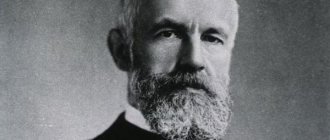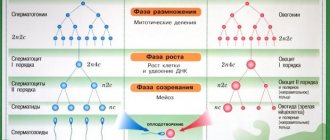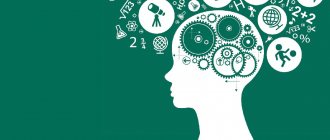Subject and methods of study
Psychology is an independent science that studies the patterns, mechanisms, and facts of mental life. If we talk about history, it can tell how theories, main directions were gradually revealed to the human mind.
Tasks of psychology:
- The study of personality, its individual development in relation to science itself.
- Study of various laws of the psyche.
- Study of social, biological properties of personality.
The methods used by researchers in the history of psychology differ from those used by general psychology. Basic techniques:
- Analysis of scientific references. Researchers determine which historical documents and theories appeared in a certain time period and how they influenced the development of society.
- Study of archival materials. Finding ancient sources of information, deciphering them, providing notes and footnotes.
- Interviewing - studying the biography of a famous scientist. To do this, he is asked a series of pre-written questions that allow him to obtain information about the person without scaring him away.
- Categorical analysis. Taking into account certain conditions in society that contribute to the development of certain concepts and schools.
- Systematization of scientific statements, their decoding depending on the discovery made, the surrounding situation at a certain point in time.
- Theoretical reconstruction. Description of scientific systems of the past, their analysis.
- Autobiographical, biographical method of study. A method designed to recreate the atmosphere in which certain scientists lived.
- Historical-functional method. An analysis of the ideas expressed by scientists in different time periods is carried out.
- Historical and genetic study. Study of the development of science in certain time periods, factors influencing the emergence of new discoveries.
The history of general psychology is an important science, in the study of which the following sources are used:
- psychiatry, medicine;
- fiction;
- military practice;
- art in its various manifestations;
- practices of education, training;
- papers written by psychologists in the past;
- historical materials;
- ethnography, anthropology.
The methods by which historical and psychological research is carried out are of three types - planning, interpretation, evidence.
Jean Piaget – child psychologist
Jean Piaget became famous for his in-depth study of child psychology. He paid special attention to the development of children's thinking and intelligence, which underlie the formation of the personality of any adult. Jean Piaget studied the following areas:
- characteristics of the child’s psyche;
- adaptive nature of intelligence;
- development of intelligence structures;
- development of the child's thinking.
Before him, the child’s mind was considered a primitive structure that gradually matures and gains experience; Piaget proved that everything is much more complicated. The general theory of developmental stages helped to understand the formation of the thinking of a small child at different ages and understand why they commit the same actions, mistakes and how they help their personality to form. In addition, abnormalities and methods for their treatment were considered. He developed a conversation and diagnostic technique, a list of questions that will help detect the symptoms of developmental disorders, as well as identify the causes of their occurrence. Based on the data obtained, the psychologist develops measures for the child’s adaptation and recovery.
Separation into a separate science
The history of the emergence and development of psychology occupies a huge period of time, which lasts thousands of years. Psychology began to stand out as a separate science only in the second half of the 19th century. By this moment, a large amount of scattered psychological knowledge had accumulated, which needed to be systematized, separated from other teachings and directions.
The founder of psychological science was W. Wundt. His work “Fundamentals of Physiological Psychology,” which was written in 1873–1874, combined a lot of accumulated knowledge into a separate teaching. The scientist called it physiological psychology.
In 1879, Wundt founded an experimental psychological laboratory in Leipzig. Then the first experimental psychologists appeared. The main subject that novice specialists studied was the study of their own consciousness and behavior.
Another psychologist, W. James, spread the combined knowledge of Wundt throughout America. He subsequently became the first professor of this science at Harvard University.
Another famous scientist who contributed to the history of psychology is E. Titchener. He graduated from Oxford University and then worked for Wundt. Having adopted knowledge from his teacher, he returned to America and created a scientific school of experimental psychology at Cornwall University.
Main representatives and schools
There are different schools that have formed over time:
- Freudianism. This is a school founded by Sigmund Freud in the early 20th century. This scientist drew attention to the unconscious (what is hidden beyond consciousness) and began to conduct research on its study. Freud argued that the subject is not always able to control his actions and change behavior. There are actions that are unconscious. Their study is carried out by interpreting involuntary movements and deciphering dreams.
- Reflexology. The founders of this school are I.P. Pavlov, V.M. Bekhterev. Both scientists studied the processes occurring in the brain, changes in the state of the nervous system when exposed to extraneous stimuli.
- Genetic psychology, developed by the Swiss psychologist J. Piaget. He created his own theory of the development of intelligence. The psychologist argued that only mental development can give a person a correct idea of the world around him.
- Classic behaviorism. J. Watson is considered the founder of this school. He called human behavior a complex of innate, acquired reactions. At the same time, behaviorism did not divide people and animals into separate groups, and almost completely denied the importance of consciousness in people’s lives.
- Cognitive psychology. This school of psychological science appeared under the influence of the rapid development of computer technology. Cognitive psychology studies the dependence of people's behavioral reactions on the cognitive maps at their disposal.
- Gestalt psychology is a theory that tries to protect the integrity of the psyche. Proponents of this school argued that electromagnetic fields constantly arise in the brain and interact with each other.
- Descriptive psychology. V. Dilthey is considered the founder of this school. He argued that life is a collection of creative instincts that form a single reality.
- Humanistic psychology. This direction appeared in the 60s of the 20th century. It is built on optimistic worldviews. Humanists believe in the creative potential of any person, his ability to independently choose his own destiny.
The most outstanding representatives of psychology who made a great contribution to the development of science:
- Piaget Jean - years of life from 1896 to 1980. He is the founder of genetic epistemology. For a long time I studied the development and thinking of children. After that, he began to study the degrees of development of intelligence.
- Eysenck Hans Jurgen - years of life from 1916 to 1997. Psychologist from England who founded the clinical-psychological direction of research. He ran his own laboratory in London.
- Wundt Wilhelm - years of life from 1832 to 1920. A famous scientist from Germany who studied psychology, philosophy, physiology, and various languages. He was the first to combine psychological knowledge into a separate science and created a laboratory for practical training.
- Watson John Broadus - years of life from 1878 to 1958. American scientist who became the founder of behaviorism. Urged other researchers to rely on objective research methods.
- Sigmund Freud - years of life from 1856 to 1939. Psychologist from Austria who created psychoanalysis. He practiced medicine for a long time, as a result of which he concluded that many pains depend on the psychological state of a person.
- Jung Carl Gustav - years of life from 1875 to 1961. A scientist from Switzerland who initially collaborated with Sigmund Freud, but later created his own direction - analytical psychology. He determined that the behavior and development of people is influenced not only by individual characteristics, but also by the influence of society.
- Pavlov Ivan Petrovich - years of life from 1849 to 1936. He studied the activity of the brain and nervous system. For the first time he identified conditioned reflexes. He created his own international scientific school.
- Rubinstein Sergei Leonidovich - years of life from 1889 to 1960. A famous philosopher, psychologist, who was a correspondent for the USSR Academy of Sciences. Developed the principles of a personal approach and determinism. Summarized some achievements of psychological science.
- Vygotsky Lev Semenovich - years of life from 1896 to 1934. One of the scientists who began to spread psychological teaching throughout the USSR. He laid the main foundations of Russian psycholinguistics.
- Bekhterev Vladimir Mikhailovich - years of life from 1857 to 1927. Scientist who studied neuropathology, psychology, physiology. In Russia he opened an experimental laboratory, and after that he founded the Psychoneurological Institute, which exists to this day.
These are not all the famous scientists who have contributed to the development of psychological science.
Sigmund Freud - founder of psychoanalysis
Sigmund Freud is the founder of psychoanalysis. Despite the fact that his methods of studying consciousness and finding a solution based on a person’s past caused controversy in the scientific community. Even in our time, Freud's theories gather great debate around them. Based on his teachings arose:
- Freudianism;
- psychoanalytic approach;
- psychodynamic approach.
According to the great psychoanalyst, all problems leading to mental disorders are hidden in a person’s life, in his childhood, parents and sexual relations. Most pathologies of a psychological nature can be solved by simply finding the original source that leads to such behavior and perception of the world.
His works formed the basis for further theories, although some psychologists even today consider him a charlatan and a businessman who simply caught a wave at a time when atheism was flourishing and moral standards were declining. But at the same time, his research underlies several theories that provide an understanding of the essence of the formation of human consciousness; they are used in classical and pathological psychology. They help direct personal development in the right direction by simply correcting a few mistakes.
Development in different periods
Throughout history, psychology has developed in many countries, new schools, theories, and directions have emerged. There are several main historical stages, without which it is impossible to imagine this science in the form in which it exists.
Ancient times
The first information about the new emerging science appeared in the 7th century BC. Then the new teachings belonged to natural philosophy, which studied the laws of all things in the world. People of that time believed that everything around had a soul - both living organisms and inanimate objects. The teachings of Heraclitus played a major role in the development of science.
In later periods of antiquity, researchers argued that the soul is the source of morality and reason. The main factor is culture. Gradually the psychology of consciousness appeared. It was developed by Aristotle and Plato. Scientists have identified two directions:
- Rationalism - its minions said that it is possible to obtain universal knowledge only with the development of reason.
- Sensualism is knowledge that is based on sensations.
Only by the Hellenistic period did researchers get to the point of studying the relationship between the individual and society.
Middle Ages
During the Middle Ages, any science was closely connected with religion. Psychology is no exception. In the period from the 3rd to the 4th centuries, ancient concepts were banned in the territory of the Christian world. They were considered pagan and anyone who resorted to studying them was excommunicated from the church, became an outcast or was executed. Philosophy schools were first closed and then driven out of Europe. Philosophical and psychological teachings returned only to the 9th century.
Starting from the 12th century, the first universities began to appear in Europe. In the 13th century, psychologists began to study the physical soul of a person, without affecting the spiritual soul, which was protected by the church. By the 15th century, the works of ancient authors received publicity and became available to ordinary peasants.
New time
In the modern period, the development of psychological science was greatly influenced by new scientific approaches - rationality, evidence-based theories. Psychologists stop studying the external manifestations of human activity and are interested in issues of the development of consciousness. An active struggle began between rationalistic and sensualistic approaches.
The scientist R. Descartes created a special theory of reflex, in which he described involuntary movements performed by humans and the behavior of animals. He later introduced the concept of the light of reason or rational intuition.
XVIII century
The development of psychological science in the 18th century was strongly influenced by the ideas of progress. In 1750, the first direction of psychology appeared - associationism. This was an autonomous direction of psychological science, which remained the only one until the 20th century. D. Berkeley, D. Yuma, C. Bonnet actively developed this direction.
The German psychologist H. Wolf published works - “Empirical Psychology”, “Rational Psychology”. J. J. Rousseau wrote that any person is kind from birth, but society over time instills in him many negative aspects that affect his behavior and future life.
XIX - early XX centuries.
The scientist O. Comte compiled a classification of various sciences, which did not include psychology. This was due to the fact that it does not have a scientific paradigm. Because of this, psychological science faced the abyss of losing the status of a separate direction. The second option concerned the merger of this science with sociology or biology. To maintain its autonomous status, it was necessary to develop a methodology. Several practical methods were quickly proposed:
- experimental approach;
- genetic surveillance;
- logical method;
- mastering, trial-error analysis.
When Darwin's theory appeared, there was a complete rejection of mechanistic determinism. New branches began to appear in psychological science:
- zoopsychology;
- genetic research;
- differential studies.
By the beginning of the twentieth century, psychological science consisted of many schools, whose representatives pursued individual goals and used their own methods for obtaining new information.
XX - beginning of XXI centuries.
The period from 1910 to 1930 is a crisis for psychology. At this time, many inconsistencies appeared in the theoretical framework accumulated over time. Because of this, new directions began to emerge that distributed the accumulated knowledge among themselves:
- sociologically oriented psychology;
- psychoanalysis, created by Freud;
- Jung's analytical psychology;
- Gestalt psychology;
- behaviorism.
In the middle of the twentieth century, several more directions appeared:
- cognitive psychology;
- logotherapy;
- humanistic psychology.
Each of the presented areas developed independently of each other. Their followers developed new methods, collected information of interest, and conducted experiments.
Present tense
There are a huge number of psychological teachings, each of which has certain characteristics and studies certain aspects of human life and behavior.
Psychology became a separate science only in the second half of the 19th century, but the doctrine first appeared in Ancient Greece. Over time, a lot of theoretical knowledge accumulated, which needed to be distributed into separate areas and systematized. After this, psychological schools appeared that studied various aspects of human life.
Carl Jung - the founder of analytical psychology
Freud's contemporary and student Carl Jung, as a psychologist, initially did not approve of some of the teachings of the great psychoanalyst. Carl Gustav Jung is the founder of analytical psychology. It is based on the concept of the collective unconscious. He introduced such concepts into psychology as
- archetype;
- collective unconscious;
- synchronicity;
- complexes.
His main theory is that a person is born whole and the formation of the psyche occurs on the basis of initially given abilities and capabilities. At the same time, the development of personality occurs under the influence of others, who can only push it in a given direction, but do not directly put pressure on it. He believed that there is a hereditary model of the psyche, which sets us the desired direction of development; knowing it, we can correct our own self-development more correctly and objectively. The unconscious has been divided into several types:
- family;
- national;
- racial;
- collective.
His treatment is more comprehensive than that of Freud, not only by the method of analysis, but also by actions that make it possible to free the subconscious and integrate the psychological components of the personality into it.










